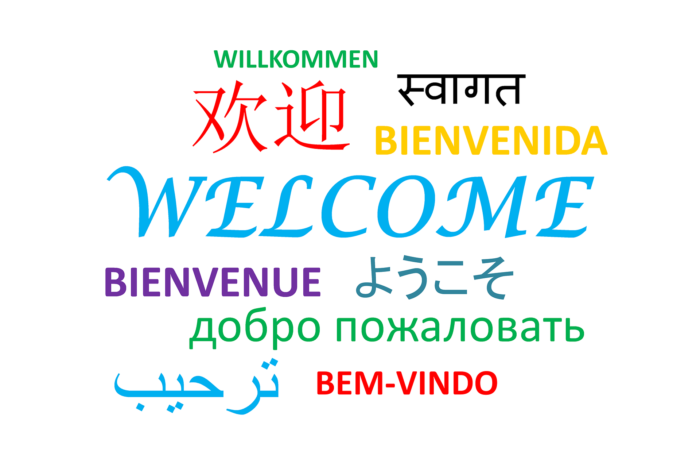smallhead BIGWISDOM
Rising your being
What foreign language to learn
I have been asked this question many times and here, I will try to give my perception on the languages that could suit best your personal or job expectations.
Despite learning any language could be extremely useful for certain people, I am going to focus only on five languages and, of course, the reasons for this selection will be provided.
I will not include English as I’m taking for granted that everyone should know at least English. Check this post Why learning a second language to know the importance of learning English and, at the same time, have an insight about becoming proficient in another language.

With that being said, let’s get started in alphabetical order!
French
Hindi
Mandarin Chinese
Russian
Spanish
French
French is still considered an influential language although in a less degree than in the past. It’s part of romance family languages which makes easier for native speakers of Spanish, Portuguese, Italian or Romanian to learn French much easier.
French is the official language of the United Nations, the Red Cross, Olympic Games and other international organizations, and a key language for business, research and technological achievements.
Have you ever thought in working for an international company? Many people would like to, and I am sure you are not the exception. Alright. Then, by learning French, you will start gaining solid justification not only to get a job but much better to transcend in your field by creating harmonious relationships in either the business, political, economic or scientific field.
Hindi
Like China, India has a fast-growing economy in different sectors which require intervention of both local and foreign resources.
India is an ancient and culturally-rich country where Hindi is one of the several official languages, which is used by the government and around 300 million people speak Hindi as their first language.
Tourism, Business, Science and technology are areas where speakers of Hindi will play a crucial role to get directly involved in this rapid and diverse development.
Hindi derives from Sanskrit and belongs to the Indo-European family. That means, it shares some similarities with Romance languages, so learning Hindi is, I wouldn’t say much easier, less difficult for people who Indo-Aryan languages or speak Spanish, Portuguese, French, Italian or Romanian.
In any case, as it’s also applicable to learning any language, if you want to learn Hindi, motivation, discipline and practice are unavoidable requirements.
Mandarin Chinese
Chinese language itself is considered a group of languages spoken in Mainland China and the regions under China’s sovereignty; however, I am only going to talk about Mandarin Chinese which is the official language of the government, news and schools.
Due to the fast-growing development of Chinese economy, Mandarin has become a very useful language for many foreigners who want to start any kind of relationship with China. Despite there are many other dialects spoken throughout China, learning Mandarin will be enough to understand and learn about this enriching culture.
According to ethnologue, more than 1000 million people speak Mandarin Chinese as their first language, and this number is gradually increasing which makes Mandarin attractive to learn and interact with a large number of people.
Many people are intimidated by news on the difficulty to learn Mandarin Chinese. By experience, I have my view on it. For more information, you can read this post: Learning Chinese language: Impossible

Spanish
It’s a highly phonetical language, so most of words are pronounced are they are written although the opposite is not always the case.
Spanish is spoken by more than 400 people from different countries in 3 continents: America, Europe and Africa. That is a remarkable factor to encourage foreigners to learn Spanish. Despite local idioms in each country, the grammar and general vocabulary are standard and can be understood or deduced by contexts.
There is an official entity that provides guidance and rules on professional writing in Spanish: www.rae.es.
This entity has members from each of the Spanish speaking countries which participate with ideas, suggestions or recommendations on how to improve the Spanish language active and promptly adjusting to society changes.
By being part of romance languages, Spanish speakers can learn much easier such languages.
It’s true that most countries where Spanish is their official language are considered developing countries; however, this situation is progressively changing and when that moment arrives, the significance of this beautiful language will be evident.
Furthermore, there are more than 50 million people speaking Spanish in the United States which consequently generates more job opportunities for bilingual people and even more for highly-qualified professionals in other disciplines who are also bilingual.
German
German is a language of great popularity not only in Europe but all over the world and it is spoken by over 100 million people.
Learning German allows people to know more and better about technology, literature, education, music and other disciplines. Students have great potential to receive education of superior quality due to the solid educational programs available in German language.
In regard to job opportunities, several well-known multinational companies are constantly in search of new talents who are able to communicate and conduct business in German. Some of those companies are: BMW, Bayer, Siemens, Bosch, Volkswagen, Daimler AG, Allianz, SAP, among others.
If you are fluent in either English, Spanish, French, Portuguese or Italian, the learning curve of German is smoother due to the similarity in grammar and vocabulary. However, this doesn’t mean it’s easy or great efforts are not required. What I actually want to highlight is that those native speakers of the Romance languages may encounter at the beginning some level of resemblance which will boost their confidence to move forward.
In any case, anyone can learn German as long as there is permanent commitment to overcome the unavoidable obstacles inherent to any activity performed.
Bottom line
Regardless which language you decide to learn, it would be a paradisaical or torturous journey based on what you do and how you do with your learning involvement. Remember that nothing worthwhile is easy and you have to allocate time to study. If you have a strong motivation, then this time studying the language will turn out into a relaxation adventure. This is what I have experienced myself and others in the same circumstances I have had the opportunity to exchange thoughts with.
I want to clearly state that English and the previous five languages I talked about are only the suggested languages to learn for many people; however, there are specific cases in which other languages are the best options.
Some examples:
- If your spouse is Brazilian and you are not, it would be wiser for you to learn Portuguese to live and work in Brazil.
- For automotive engineers learning German or Japanese is a great option
- If you want to find your beloved in another country, many problems would be avoided by learning their native language
If you have some experiences or opinions in this regard, please share them on the comments below, so we can all learn from each other.
- How many languages do you speak proficiently?
- What language or languages will displace English as the international language?
- With artificial intelligence developments, do you foresee bilingualism still necessary in the near future?
- Is there any other language as potential “must” learn?
Get the book about 1100 English-Spanish Cognates!
Bonus: Audio pronunciations
Get it now!
(See Table of Content)



0 Comments